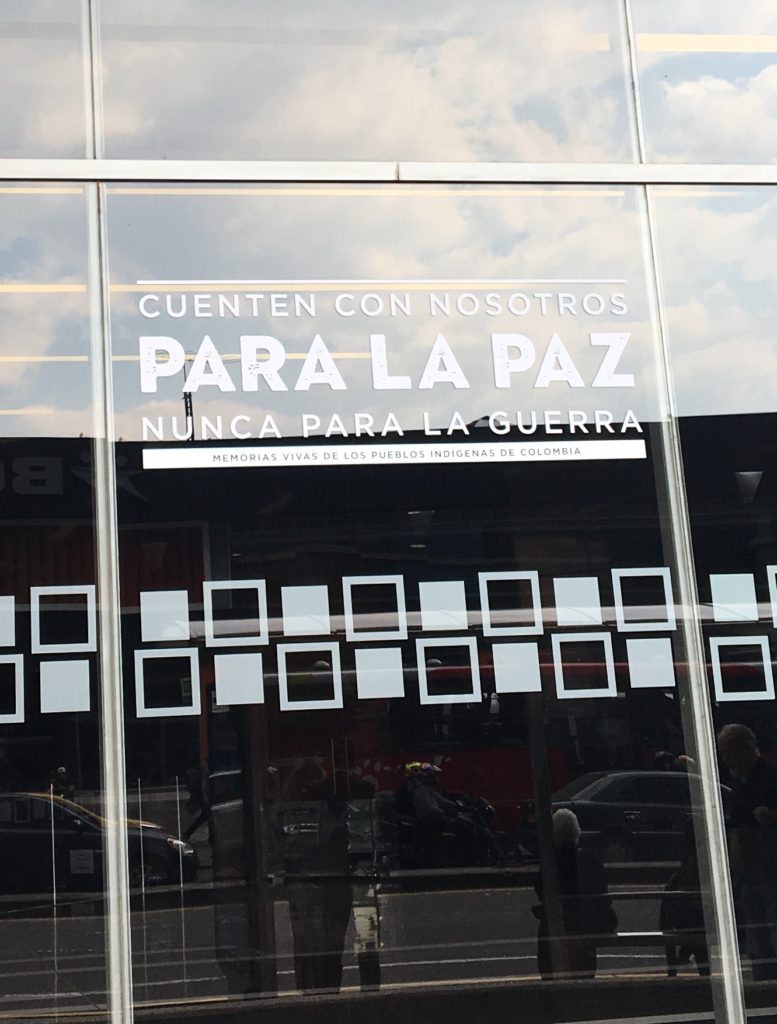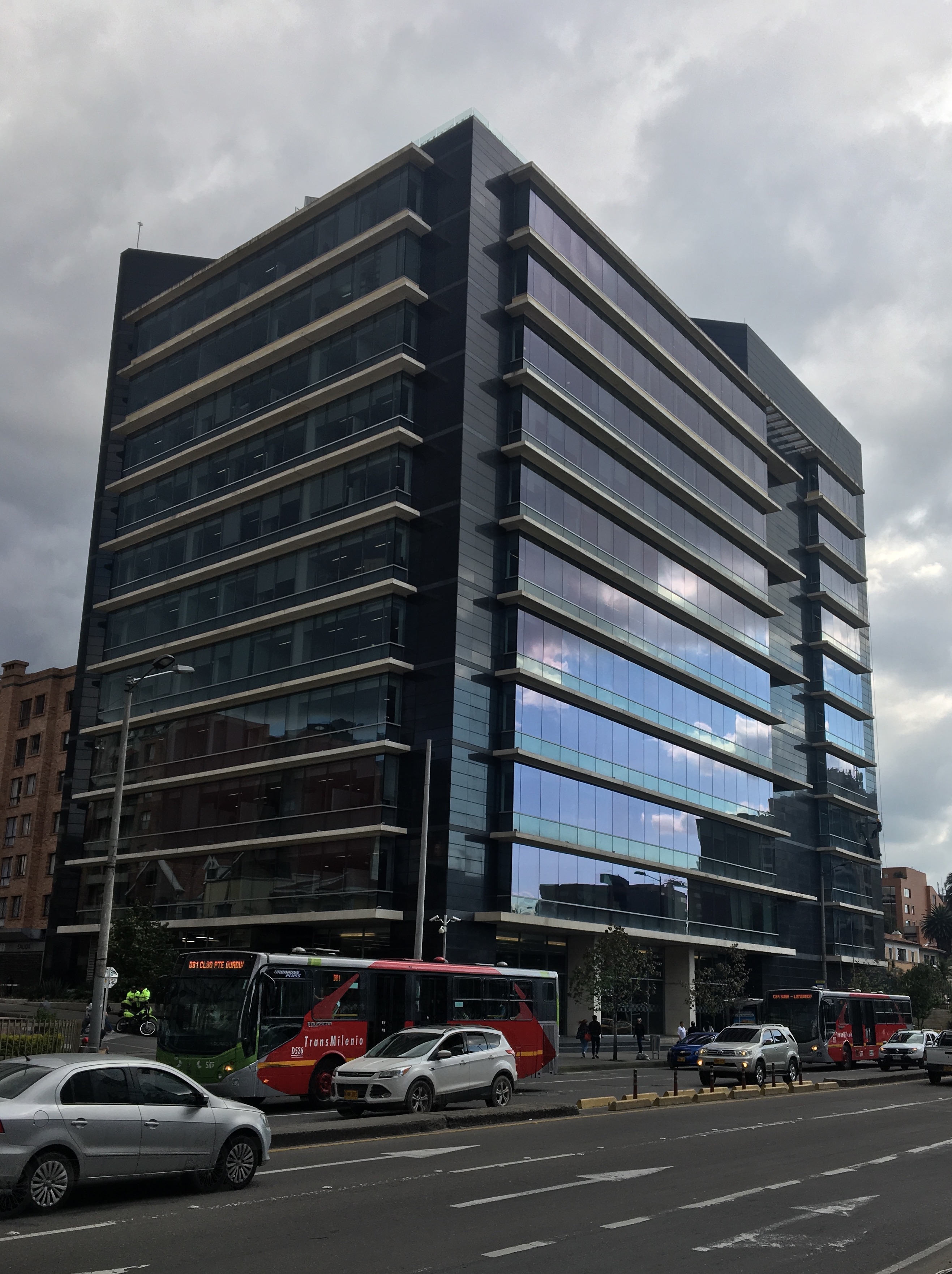By Saskia Nauenberg Dunkell for Denver Dialogues.
During the 2012-2016 Colombian peace negotiations, delegates emphasized that victims are at the center of the transitional justice agreement. Victims’ rights to justice, truth, reparations, and guarantees of non-repetition have been at the core of a normative legal framework used to establish transitional justice measures around the world. Yet evidence from Colombia shows how political groups can invoke transitional justice for contrasting purposes—on the one hand, groups may appeal to transitional justice to prevent impunity and empower victims of human rights violations. On the other hand, transitional justice can be used for antithetical goals that preserve unequal power relations. As Colombia’s Special Jurisdiction for Peace (Jurisdicción Especial para la Paz, JEP) navigates a new year of political challenges, it must continue to return to victims of the conflict as the protagonists of Colombia’s transitional justice efforts.
Background on the JEP
Constructing the JEP during the 2012-2016 negotiations between the Colombian government and the FARC was crucial for achieving a peace agreement. Debates over how to address human rights violations committed during the conflict lasted more than a year and a half, and almost led to the negotiation’s collapse. Delegates were able to overcome this impasse by designing the JEP, an innovative judicial approach that is part of Colombia’s Comprehensive System for Truth, Justice, Reparations, and Non-Repetition.
The JEP is a conditional system that pressures individuals who have been accused of international human rights crimes to cooperate with transitional justice measures. Individuals who submit to the JEP, admit their crimes, and acknowledge their responsibility can receive 5 to 8 years of an “effective restriction of liberty”—a sentence that involves restorative projects in a designated area that is not a prison. In contrast, those who fail to comply may be subject to ordinary prison sentences of 15 to 20 years.
Political Struggles
The JEP follows from a long history of polarizing transitional justice initiatives in Colombia. In 2005, President Uribe established the highly criticized Justice and Peace Law, which initially offered demobilizing paramilitaries reduced sentences of 5 to 8 years without any requirements to disclose the facts surrounding their crimes or turn over illegally acquired assets. National and international human rights groups mobilized to strengthen the transitional justice approach for paramilitaries, and worked within a flawed system to advance important initiatives, including the Historical Memory Group.
In a paradoxical twist, Uribe was one of the strongest critics of the transitional justice approach established by his successor, President Santos, nearly a decade later during the 2012-2016 peace talks with the FARC. Uribe and a coalition of right-wing politicians falsely framed the JEP as impunity for guerrillas and led a “no” campaign for Colombians to narrowly reject the peace accord in the 2016 national plebiscite. While Santos’ government and the FARC eventually signed a revised accord that was ratified by Congress, Uribe’s messaging and “no” coalition created a lasting challenge to the legitimacy of the JEP amongst many Colombians.
Since the peace accord, Colombia’s Congress and Constitutional Court have modified the transitional justice agreement with the FARC as it has translated into laws. For example, a provision in the original accord that would have compelled civilian third parties accused of authoring grave crimes—such as landowners and businessmen—to appear before the JEP, was removed and replaced with a provision that makes this voluntary. The JEP also faced disputes over its authority to address cases such as the extradition of FARC leader Jesús Santrich. Meanwhile, President Duque, a political disciple of former president Uribe, assumed office in August 2018 proposing major changes to the JEP, including stronger penalties for the FARC and separate treatment for the state’s armed forces.
In spite of numerous obstacles, the JEP made important advances in its first year, opening five cases that involve more than 800,000 victims. These cases prioritize a range of crimes, including kidnapping by the FARC, so-called “False Positives” extrajudicial executions by the state, and violence that particularly affected Afro-Colombian and indigenous communities in the Department of Nariño.
The Future of the JEP

As groups endeavor to change the JEP to serve their interests, Colombians and foreign allies must watch for initiatives that are promoted under the guise of peace and justice while losing sight of victims. The malleability of transitional justice allows individuals with complementary, contradictory, and competing political goals to promote these measures for different purposes.
Encouragingly, history has shown that governments do not have a monopoly over transitional justice measures. Even when political struggles shape how transitional justice is developed, victims’ advocates, human rights groups, and others can work within this system to pursue favorable outcomes.
Saskia Nauenberg Dunkell is a research affiliate at the Promise Institute for Human Rights at UCLA.







